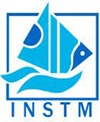 The INSTM is composed of four National Research Laboratories: Available Marine Resources, Aquaculture, Marine Environment and Biotechnology and Biodiversity. The research activities are distributed over six geographical regions. Aquaculture research takes place in 3 centres: 1) the Centre of Salammbô (the principal centre) which is concerned in Continental Aquaculture, 2) the centre of Monastir involved in marine aquaculture, and 3) the Centre of Bechima (Gabès) interested in Geothermic freshwater Aquaculture.
The INSTM is composed of four National Research Laboratories: Available Marine Resources, Aquaculture, Marine Environment and Biotechnology and Biodiversity. The research activities are distributed over six geographical regions. Aquaculture research takes place in 3 centres: 1) the Centre of Salammbô (the principal centre) which is concerned in Continental Aquaculture, 2) the centre of Monastir involved in marine aquaculture, and 3) the Centre of Bechima (Gabès) interested in Geothermic freshwater Aquaculture.
INSTM is a key location for national and international research on fisheries and a special interest is taken in aquaculture in closed lagoons and embayments. INSTM regroups approximately 220 persons among them 100 researchers. A strong national cooperation links INSTM to several Tunisian Universities, Research Centres and professional stockholders.
Tasks inside the project
INSTM will participate in WP2, WP8 and WP10. In WP2, their contribution will be related to the benchmark analyses of eels. Collaboration with P1, P9, P11 and P13 will provide opportunities for collaborative work with reproduction, breeding of larvae and nutrition affected by dietary factors. In WP 8, the group will take part in larval rearing in different systems. In WP 10, INSTM will provide input to the foresight analyses by synthesising information about history and scope for eel aquaculture and research in North Africa. In addition, one of the planned workshops will be held in Tunisia to interact regionally with scientist and stakeholders including industry and policy makers aiming at an outreach in North Africa.
Relevant experience regarding major tasks
Given their previous experience with international projects including eel research and their general experience with aquaculture INSTM will be able to collaborate of different aspects of reproduction, breeding of larvae and nutrition of fish. Research training of Ph.D students and scientists is available at P1 and P9 and potentially also other participants. The group is experienced in rearing different larval species (e.g. pike-perch, sea-bass, mullet) in different rearing systems, including mesocosms. Larval rearing trials include the investigation of mixed diets, the digestive capacity of the larvae as well as their feeing and growth under different environmental conditions. Mass-rearing of larvae in large systems has also been carried out.
Project participants
Prof. Mohammed Mejdeddine Kraiem is High Education Professor and Director of the Laboratoire d’Aquaculture at INSTM since 1998 and was formerly a lecturer in the Dept. de Biologie et Ecologie animales, la Faculté des Sciences de Tunis, Universite de Tunis. His Doctoral thesis was on the ecology of Barbus barbus in the River Rhone (Université Claude Bernard Lyon I ). He has worked in the international EU-CASSARINA and MELMARINA Projects and in several international studies on the National Parc of Ichkeul, Bizerta and Ghar El Melh lagoon and on Eel populations monitoring Project with FAO (TCP/TUN/3001. He is member of the National Consulting Committee of Aquaculture in the Tunisian Ministry of Agriculture.
Dr. Inès Ben Khémis: Researcher in Fish culture (Reproduction, ontogeny and development stages : sea bass, mullet and pike perch).
Dr. Mohamed M’Hetli: Researcher in fish culture (Reproduction and restocking dams and mountain lakes).
Dr. Neila Hamza: Researcher in Fish larvae Nutrition and feeding (Pike-perch).
Mohamed Salah Azaza: Researcher in fish culture (Reproduction, breeding larvae and nutrition of Tilapia and Mullet).
Dora Zouiten and Khemis Ben: Researchers in fish breeding, larval culture including mesocosm technology and ontogeny (sea-bass, mullet).
Besma Hizem: PhD student, preparing a thesis on Tunisian Eel populations.
Relevant publications
Ben Khemis I., Hamza N., Zouiten D., Mhetli M. & Cahu C. Importance of life feed and replacement diets in Aquaculture. Journal of Sustainability Science & Management (accepted).
Hamza N., Mhetli M., Ben Khemis I., Cahu C. & Kestemont P., 2008. Effect of dietary phospholipid levels on performance, enzyme activities and fatty acid composition of pikeperch (Sander lucioperca) larvae. Aquaculture, 275 : 274–282.
Zouiten D., Ben Khemis I., Masmoudi A.S. Cahu C., 2009: Physiological indicators for assessing the quality of development in sea bass (Dicentrarchus labrax) larvae reared with intensive and mesocosm technology. Aquaculture, (in press).
Zouiten D., Ben Khemis I., Besbes R. & Cahu C., 2008. Ontogeny of the digestive tract of thick lipped grey mullet (Chelon labrosus) larvae reared in “mesocosms”. Aquaculture 279 (2008) 166–172.
Azaza, M.S., Mensi F., Wassim. K. Abdelmouleh, A., Brini, B. and Kraiem, M.M., 2008. Nutritional evaluation of waste date fruit as partial substitute for soybean meal in practical diets of juvenile Nile tilapia, Oreochromis niloticus L. Aquaculture Nutrition (in press).
Azaza, M.S., Kammoun, W., Abelmouleh A, Kraiem, M.M., 2008 Growth performance, feed utilization and body composition of Nile tilapia, (Oreochromis niloticus L.) fed with differently heated soybean meal-based diets. Aquaculture International, Doi: 10.1007/s10499-008-9220-8.
Azaza M.S., Wassim K., Mensi F., Abdelmouleh A., Brini B. and Kraiem, M.M., 2008. Evaluation of fava beans (Vicia faba L. var. minuta) as a replacement for soybean meal in practical diets of juvenile Nile tilapia Oreochromis niloticus (L., 1758). Aquaculture (in press).
Hizem-Habbechi B., P. Elie & M. M. Kraiem.- Le parasitisme par Anguillicolla crassus de l’anguille européenne Anguilla anguilla en Afrique du nord (zones sud de son aire de répartition). Etude de l’infestation des anguilles tunisiennes. Communication Xèmes Journées tunisiennes des Sciences de la Mer. Sousse, décembre 2008 (p. 16).